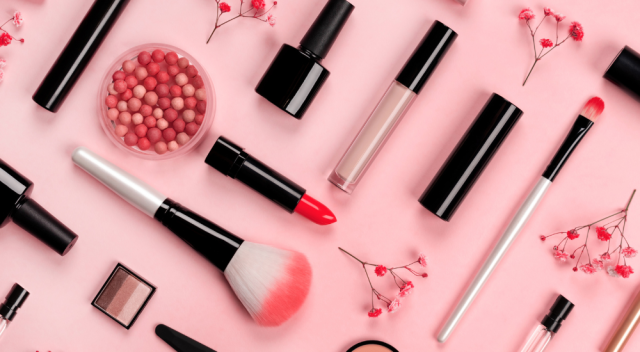With more than 25 years of experience in the trenches of the luxury market, Lee Wood shares her expertise on what makes a luxury product. Shania O’Brien uncovers the industry’s secrets with the founder and CEO of NeoGenesis Rx Skin Lab.
Lee Wood is a connoisseur of luxury. Wood is the founder and CEO of NeoGenesis Rx Skin Lab, and also has a primary focus on product research and development all the way through to the market.
She first began as the New South Wales Clinical Educator for Advanced Skin Technology in 1997, which was the only medical skincare company at the time. Wood’s background also boasts an extensive specialisation in pure cosmeceutical and medical-grade skincare with several market-leading organisations for almost 25 years which is why she is the perfect subject for a deep-dive into what makes a luxury product.
High end products have connotations of luxury goods that come with a high price tag and the quality to match. The trendy lipstick that is out of stock everywhere, a designer blush that changes colour, an eyeliner with an intensely smooth applicator. Luxury goods are viewed as extraordinary, rare and opulent. But what actually makes a product luxury? Is it merely the price or is the packaging important? What about the product itself?
Professional Beauty spoke to Wood, who will join the panel on skin formulations with PB at this year’s BEAUTY & SPA Insiders event in September about the behind-the-scenes aspects of luxury beauty merchandise.

Lee, tell us what you think constitutes a luxury product?
“Luxury branding is usually a function of exclusivity created by price positioning and niche marketing, because of this ‘luxury’ doesn’t always manage to equal premium product performance and efficiency.
Clinical grade products in the medical arena hold very high expectations in terms of performance with our skin specialists. This, in turn, also becomes the expectation of the patient-end consumer. Luxury in this category is now results-driven with a higher emphasis also on elegance and purity.”
Based on research, the qualities of a luxury product include ‘craftsmanship,’ ‘design,’ ‘materials,’ and ‘exclusivity.’ Does this align with what you think?
“Absolutely, formulations should be completely free of: parabens, SLS | ALS (Sodium & Ammonium Lauryl Sulfates, PEGs (Polyethylene Glycols – petroleum derivatives) Mineral Oil, Artificial Colours and Fragrances and Cruelty.
The choice of elite biomimetic (skin identical) active and base ingredients are a sign of high quality design delivered with penetration enhancers and phyto (plant-based) anti-inflammatories and anti-oxidants that work with the skin’s natural anatomy for expedited results. The compliance rate of formulations with these attributes initiates repeat purchases and rapid word of mouth marketing as well.”
Products are often marketed as luxury but do not hold up to high standards. Have you found this to be true in your experience in the industry?
“Consumers are quite frankly sick to death of products that are underwhelming; they are even more doubting these days of over-hyped marketing claims, false and hollow celebrity endorsements, and ‘miracle cures’ from some unproven little known exotic ingredients that are listed.
When you are shown different supposed high end formulations by ingredient distributors, the level of non-desirable ingredients is surprising and a complete deterrent to a formulator with clients wanting the very best formulations that offer integrity along with tangible luxury.”
Do you think it is easy for a new brand, without an established identity, to produce expensive, luxury goods?
“This depends on the establishment of the manufacturer and minimum quantity orders — it is just as easy to add one gram of an expensive elite ingredient as it is to add one gram of a known nasty ingredient. If your manufacturer works with you to build your brand and chooses to have endless access to high quality ingredients, the initial outlay for a new brand is affordable — and longevity is achievable.”
What would a product need to get your tick of approval as high-end?
“The most important brand position to build with the consumer is trust, as this is where consistent reliability and delightful performance collide. For me personally, and as a company, you can’t go wrong by relying on science.
Building a luxury brand is a journey with a superior brand promise that is not easily matched. Relying on scientific fact builds symbolic value, and allows for an emotional brand narrative to be created, one that links with the social standing that is desired.”
This article first appeared in the July-August issue of our print magazine.
Read the current issue of our digital magazine here:
- For more news and updates, subscribe to our weekly newsletter
- Follow us on Instagram
- Like us on Facebook
- Join Australia’s largest network of beauty industry professionals on LinkedIn
- Subscribe to our print magazine
Have an idea for a story or want to see a topic covered on our site and in our pages? Get in touch at info@professionalbeauty.com.au.

